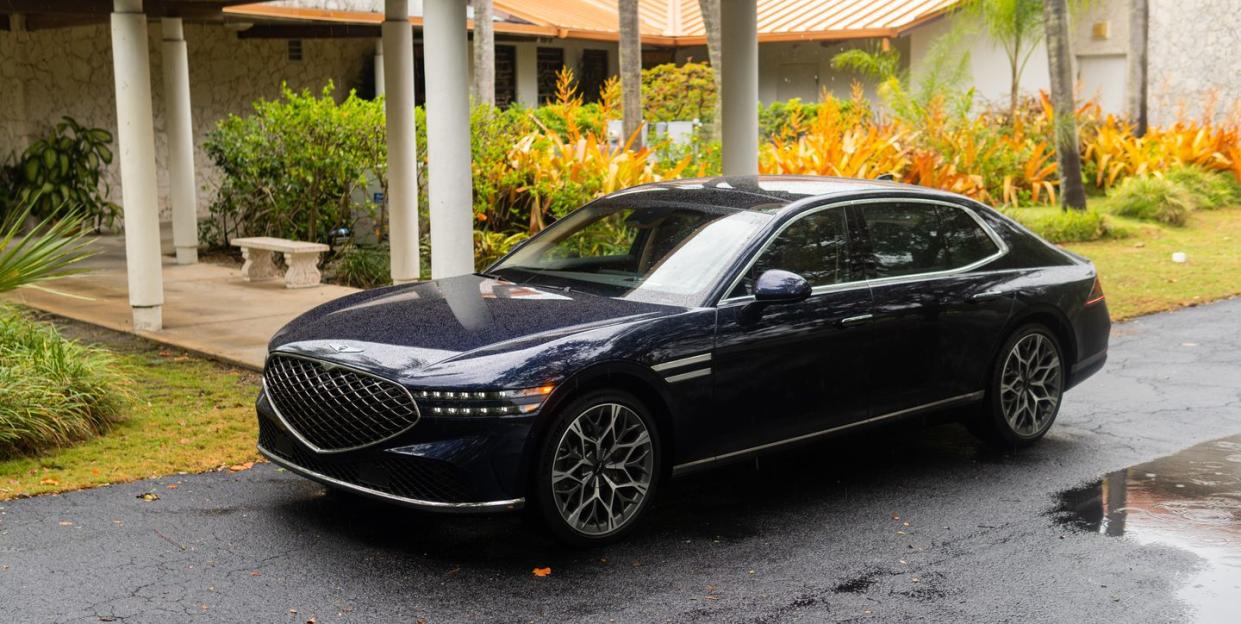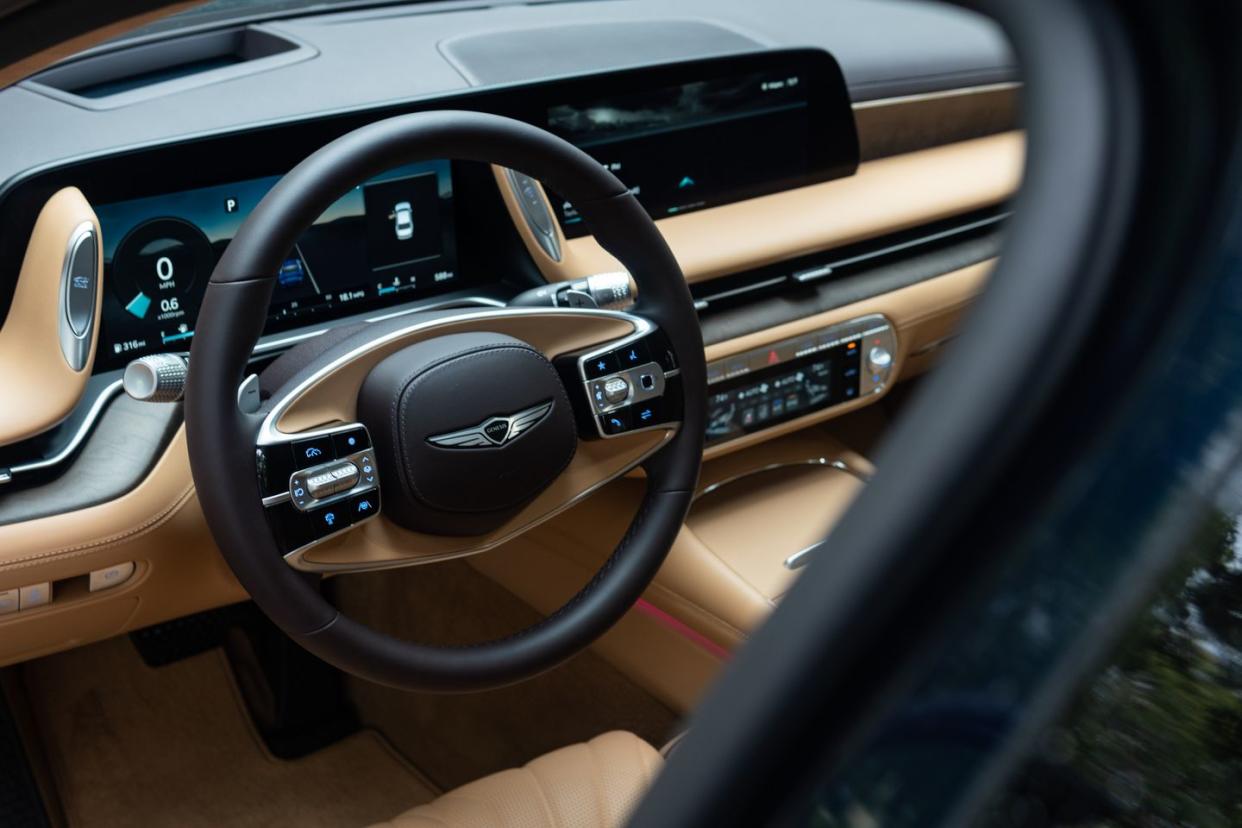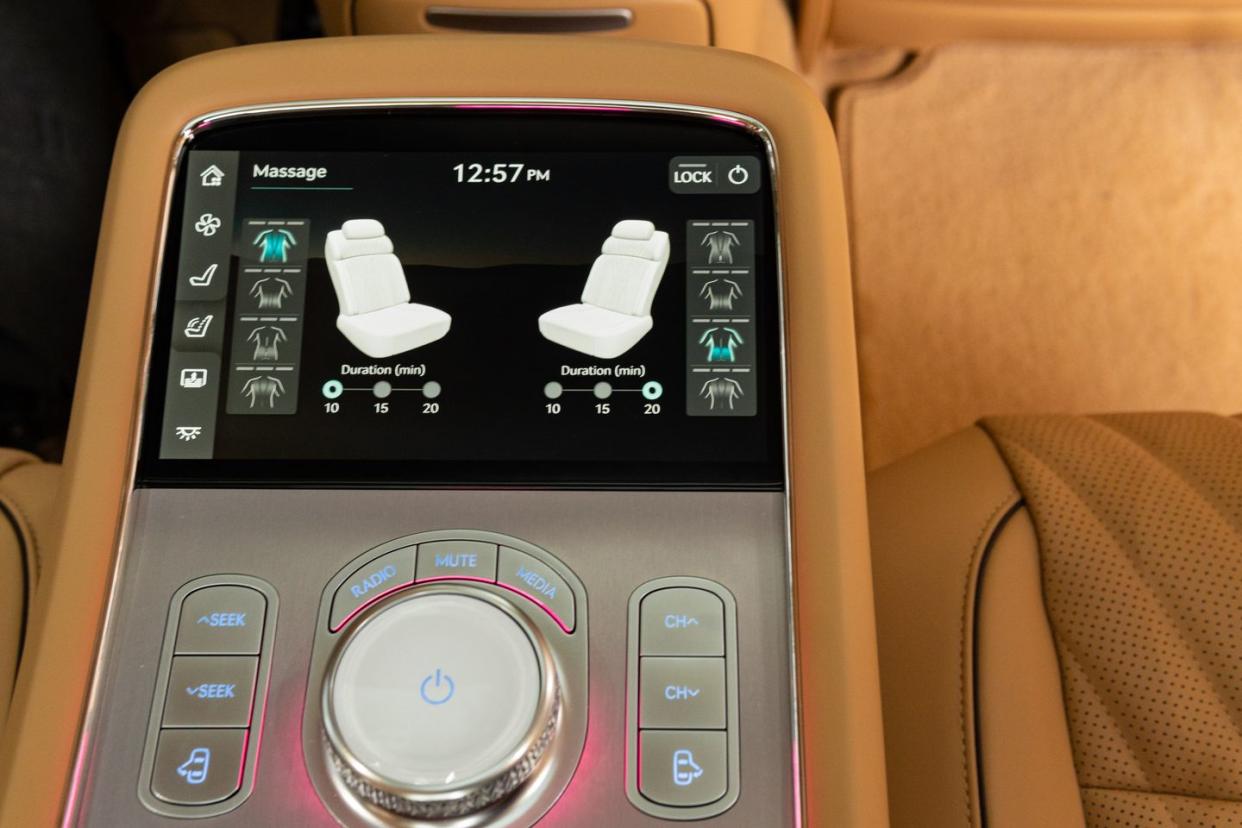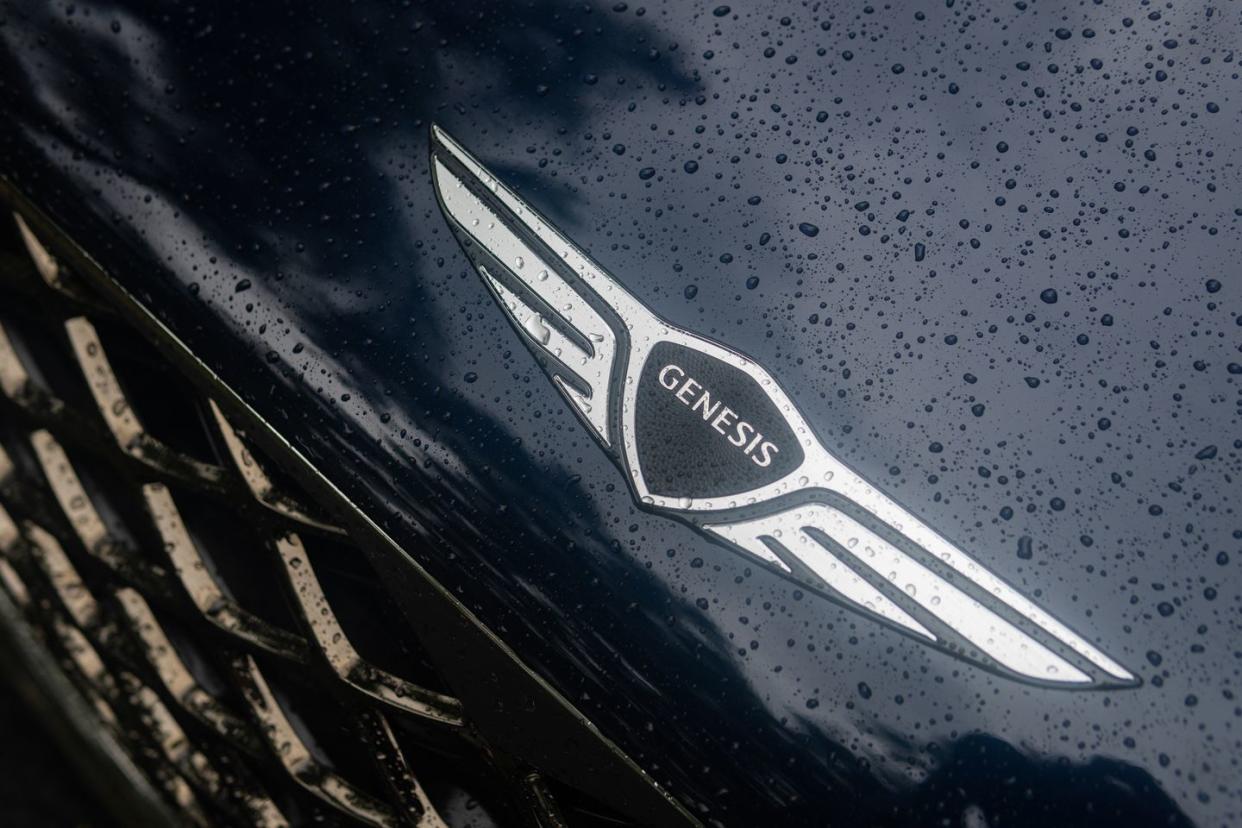The 2023 Genesis G90 Is Amazing, But Who Cares?

Genesis frustrates me. As an automaker, it has never produced a bad car, making me question my integrity as I prepare to rave about yet another model. As a brand, though, it has aggressively pursued a strategy that feels plucked from the Nineties. No better example of this phenomenon exists than the all-new, 2023 Genesis G90.
Because it is roundly brilliant. The G90, already stellar in its previous incarnation, is now a near-peer to the Mercedes S-Class in its refinement. It delivers an experience so similar that even the sharpest auto critic sounds a pedant listing them out, forcing one to note things like a barely discernible rear-end jiggle over the harshest bumps. No buyer, friend, or executive would ever notice the gap.

In some ways, the average flagship luxury buyer may prefer the Genesis. Over two days in South Florida, with time split between the driver’s seat and the reclining rear lounge chair, I found the G90’s technology considerably less irritating than what you get in the newest S-Class. Sure, the S-Class has more whiz-bang accouterment, but the Genesis offers the big-ticket stuff and gives you physical buttons to control it.
The car is also more relaxed. The endless chimes and prompts to try new features in the S-Class are replaced by a serene, aloof attitude. There is plenty to explore here, from Smart Parking and semi-autonomous driving to configurable fragrance preferences, but the G90 is quite secure in itself. In normal operation, it behaves like a car, with clever touches like the blind-spot cameras that activate when you engage a blinker enhancing but not dominating the experience.

Even the powertrain conceals its hand. Top-trim models like our $99,795 fully-loaded tester come with a new version of Genesis’ 3.5-liter turbo V-6, this time aided by an electric supercharger. With ten forward gears, the car has a lot to manage, but power delivery is remarkably consistent for a first-generation powertrain. Its only hiccup comes when its auto-stop-start system refires the engine, producing a noticeable jolt. Despite Genesis' suggestions of unparalleled smoothness, a Mercedes inline six refires almost indiscernibly. The G90’s 409 hp and 406 lb-ft of torque also cannot match the absurd outputs of a V-8 BMW or Mercedes, but the Genesis carries itself with the same sophisticated urgency of a proper long-haul mega-sedan. The ride, meanwhile, is simply incredible. A Maybach driver wouldn’t feel any difference until both cars were going triple-digit speeds.
For an older, monied clientele, this simple, competent approach arguably makes more sense than Mercedes’ strategy. But this isn’t a segment defined by sense. That, unfortunately, remains Genesis’ biggest hurdle. Because while the real-life difference between the G90 and its traditional German competitor is small, there’s a much bigger distinction in how they capture the imagination.

The promise of the Mercedes S-Class is that you are buying the best luxury car in the world. It’s one that Mercedes has done an admirable job of following through on, responding swiftly and at great cost when Lexus challenged it for the throne 30 years ago. Since then Mercedes has spent lavishly to ensure that the S-Class remains the most over-the-top car in both comfort and technology. It doesn’t just offer radar cruise, it offers a radar cruise suite that has been refined for the better part of two decades. It doesn’t just have the same semi-autonomous system as everyone offers, it has a next-generation setup that, at least in Germany, specifically permits drivers to text and daydream while stuck in certain traffic jams. Elsewhere in the country, S-Classes are parking themselves in outrageously expensive, invisible valet garages.
This is the purpose of the segment. No one on this planet needs the sort of reclining-seat, perfumed comfort that the Mercedes and Genesis supply. They’d hardly be uncomfortable in a G80, or, hell, an Avalon. But they don’t want to be comfortable. They want to be as comfortable as possible, as pampered as money can buy. When that buyer sits in an S-Class, bathed in brilliant multicolor light from every crevice, they don’t just get a massage. They get a hot-stone massage, programmed by a company that was putting massage seats in the E-Class back in 2004.

The one place where the G90 takes a noticeable step forward for the segment—by offering a full phone-as-a-key option that works with iPhones—was also the one part of it that frustrated me. The low-energy Bluetooth connection wasn't nearly as seamless as a keyfob, even if the promise of not needing to carry one eventually sounds great. Surely Genesis’ early work here will make its solution class-leading in the long term, but by following Mercedes it has imitated Stuttgart’s greatest weakness: Providing a clunky solution today, rather than an elegant one tomorrow.
No wonder competing on Mercedes’ terms has rarely worked out. Acura and Infiniti never matured enough to gain serious share in the top-end segment, BMW’s 7 Series has always struggled to define its own image, and the Audi A8’s moment as the stylish, tech-forward play quickly passed. Only Lexus has ever succeeded in building a brand through this segment and, tellingly, the very nameplate that nearly usurped the King is now functionally irrelevant. Of course, Genesis and other brands argue there is a lot of brand-building value in having a competent flagship. Surely anyone who sees a G90 will be suitably impressed by the design. Yet, when less than three thousand leave lots every year, it’s hard to imagine the G90 having much of an impact. I’ve noticed roughly two in the wild since the last facelift.

Only two flagship luxury vehicles have built long-term success to rival and then beat the S-Class: The Cadillac Escalade and the Land Rover Range Rover. Both have considerable failings yet still far outsell anything Genesis makes with, I’d assume, much heftier margins. Both, by avoiding chasing Mercedes’ tail, have carved out roles in which they can truly claim to be the best in the world. The Cadillac as the ultimate evolution of the luxury truck, the Land Rover as the ultimate evolution of the luxury off-roader.
As it stands, the Genesis G90 is not the ultimate anything, other than “the ultimate Genesis.” The brand, in focusing so heavily on a traditional limousine as its flagship, is missing an opportunity to own a new, growing segment like the ultra-luxury crossover. Instead, it has built something 95 percent as good as the best car in the world, a monumental achievement that only three or four brands worldwide have the capability to pull off. The G90 is a better value than the Mercedes, better looking than anything in its segment, and more comfortable than anything Lexus builds. But in a segment where that extra 5 percent matters, in a country where we all read a dozen best-of lists just to buy a mattress, the G90 can’t claim to be King. It has to settle for exceptional.

You Might Also Like
